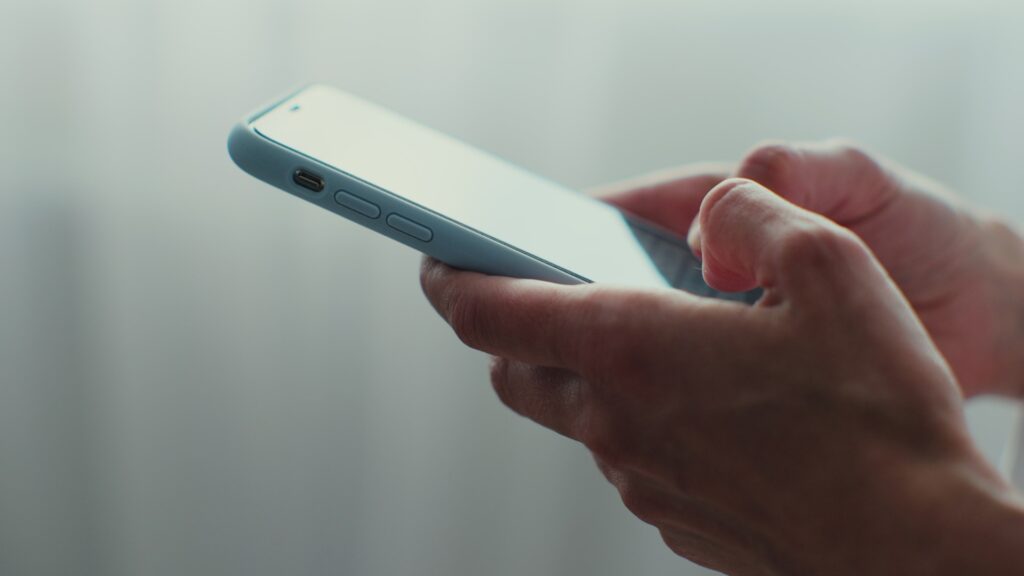The Best Mental Health Apps for Daily Support

Life is lifing way too hard lately. Between work stress, family drama, trying to eat vegetables that don’t taste like regret, and staying “hydrated,” who really has time to find a decent therapist, wait 6 weeks for an appointment, and then hope your insurance covers it before your health deteriorates?
That’s where mental health apps and telehealth services come in, sliding into our phones like a digital BFF who actually reminds you to breathe. No awkward waiting rooms. No “can I afford this?” panic attack afterward. Just real support, when and where you need it—like on your lunch break or hiding in the bathroom pretending to pee for a moment of peace.
Let’s dig into why these apps are changing the game, which ones are worth your time (and your data), and how to turn your phone into a tiny therapist that fits in your pocket—but doesn’t ghost you.
Why Mental Health Apps Matter
Gone are the days when therapy only happened on a pleather couch with a box of tissues in arm’s reach. Today, accessibility is the name of the game—and mental health support has (finally) entered the 21st century.
Here’s why that matters:
- Accessibility: You can get support whether you live in a big city or in a small town where the only “therapist” is your dog.
- Affordability: Many apps are cheaper than traditional therapy—some are even free. (Bless!)
- Flexibility: Can’t make that Tuesday at 3 p.m. appointment because your life is a dumpster fire? That’s fine. Many apps are available 24/7.
- Privacy: No awkward eye contact in a waiting room. No bumping into Karen from accounting while you’re emotionally fragile.
And let’s be real—sometimes talking to a screen feels safer than talking to a human. Especially when your inner dialogue is throwing a full-blown tantrum and you don’t want to say it out loud just yet.

Top Therapy & Mental Health Apps Worth the Hype
So, which mental health apps are actually helpful and which are just digital paperweights clogging your phone storage? Here’s a roundup of apps that real people actually use—and benefit from.
1. BetterHelp
What it does:
BetterHelp connects you with licensed therapists through a sleek app interface—via messaging, phone calls, or video sessions. No waiting rooms. No awkward eye contact while flipping through a battered Psychology Today.
Why it works:
BetterHelp uses an onboarding quiz to match you with a therapist based on your communication style, mental health goals, and preferences (yes, you can request a female therapist who uses a holistic approach or someone who’s LGBTQIA+ affirming). It’s also subscription-based, which often makes it cheaper than in-person therapy—and you can switch therapists easily if it’s not vibing.
Best for:
People who want real, licensed therapy without the logistics (or cost) of weekly office visits. Perfect for anyone managing anxiety, depression, or burnout while also trying to function like a normal human.
Bonus points: You can message your therapist anytime. They’ll respond during their set hours, but it feels like a little mental health safety net when life comes at you fast.
2. Talkspace
What it does:
Talkspace is like texting your therapist with a side of video or live chat if you need it. Once matched, you can message your therapist as often as needed, and depending on your plan, you can book real-time sessions too. No awkward couch. No need to find parking.
Why it works:
Let’s be honest: not everyone wants to bare their soul over Zoom. Talkspace’s text-based model makes it feel less intimidating, and it fits easily into busy, chaotic schedules. Therapists typically reply daily, and you can revisit old messages when you need a pep talk or reminder you’re not spiraling alone.
Best for:
Busy professionals, introverts, and anyone who needs therapy that adapts to them—not the other way around. Especially great if the idea of sitting in an office and saying “So, I have issues…” sounds exhausting.
Cool feature: They also offer psychiatry services—so if you need med management along with talk therapy, it’s all under one digital roof.

3. Calm
What it does:
Calm is your pocket-sized peace coach of mental health apps. It serves up guided meditations, dreamy sleep stories, relaxing music, breathing exercises, and gentle nudges to stop doom-scrolling and start breathing.
Why it works:
Whether you’re trying to de-stress after work, fall asleep without overthinking your entire existence, or just need five minutes of calm between meetings, this app shows up like a soothing bestie. Oh—and did we mention some of the sleep stories are narrated by Matthew McConaughey and Idris Elba? Because nothing says “relax” like being told a bedtime story by a celebrity whispering in your ear.
Best for:
People who overthink at 2 a.m., multitaskers who need micro-moments of peace, or anyone who wants to be gently reminded they are, in fact, not a complete disaster.
Bonus feature: The sleep content is unmatched. It’s like NyQuil for your brain—but without the grogginess.
4. Headspace
What it does:
Headspace offers guided meditations for stress, anxiety, productivity, and sleep—plus mini “mindful moments” for when your attention span feels like a squirrel on espresso.
Why it works:
It’s beginner-friendly, beautifully designed, and grounded in science. Whether you’re a mindfulness newbie or someone who’s tried meditating but got bored three breaths in, Headspace meets you where you’re at. Their animated explainers make meditation feel more like a brain workout than a spiritual obligation.
Best for:
People who want a low-pressure intro to mindfulness, visual learners, or anyone who wants to feel calm without feeling like they’re in a yoga retreat commercial.

5. Moodpath (now MindDoc)
What it does:
MindDoc is like a feelings journal with benefits. It prompts you to check in with your mood, log symptoms, and track your mental health over time—then turns all that data into useful insights.
Why it works:
Instead of realizing three weeks into a spiral that oh yeah, I’ve been feeling off, MindDoc helps you catch patterns early. It’s not a replacement for therapy, but it’s an amazing supplement—especially if you’re trying to figure out your emotional rhythm (or lack thereof).
Data nerds rejoice: It creates mental health reports you can share with a therapist—or just review for your own self-awareness glow-up.
Best for:
People who want to treat mental health like they treat fitness—consistent tracking, real data, and small wins. Great for journaling types, self-awareness junkies, and anyone on a personal growth mission.
6. Youper
What it does:
Youper is your always-available emotional health assistant—powered by AI. It checks in, helps you unpack your emotions, and gently nudges you toward insight and clarity. It’s like texting your inner therapist, minus the co-pay.
Why it works:
The app uses CBT-based techniques to help you challenge negative thinking, reframe your thoughts, and get some much-needed emotional clarity—without having to explain your childhood. It’s especially helpful when you’re not ready to talk to a human but still need to process the ick.
Best for:
Introverts, overthinkers, or anyone who needs a therapy-adjacent outlet without the pressure of being seen. Also ideal for that post-text spiral when you’re tempted to trauma-dump on your ex… but know better.
Tech Tools to Enhance Your Experience With Mental Health Apps
Okay, now that we’ve downloaded every app known to humankind and our phone is having an identity crisis, let’s make sure we’re actually set up to use them.
Here’s what you need to make app-based support seamless and comfy AF:
Let’s face it—holding your phone during a 30-minute virtual session is a workout for your wrists and attention span. A smartphone stand keeps your device stable during therapy, meditation, or those “I swear I’m journaling” moments.
Amazon Pick: Adjustable smartphone stand with sleek angles and foldable design—perfect for couch therapy and “zen-ing” on the go.
There is nothing like trying to meditate while your neighbor is screaming at their cat. Noise-canceling headphones block out the chaos and let you sink into your guided breathing like the peaceful, centered human you’re pretending to be.
Amazon Pick: Over-ear noise-canceling headphones that make the world go quiet—even if your brain won’t.
Digital Subscription Gift Cards
Want to gift someone Calm, Headspace, or BetterHelp but don’t want to be that person who says, “Hey, you look like you need therapy”? Enter: digital subscription cards. It’s a judgment-free way to say, “I love you, now go breathe.”
Amazon Pick: Amazon and Google Play gift cards that let your loved ones choose the help they need, without you making it awkward.
App-Based Support Isn’t Perfect (But It’s a Start)
Let’s be brutally honest for a sec—mental health apps aren’t a replacement for deep, ongoing therapy with a licensed professional who can hold space for your messy, beautiful, complicated humanity.
But… they’re also not supposed to be.
Apps are a tool. A bridge. A starter kit. A life raft when you’re not ready to dive into the deep end of mental health care, or when you can’t access it traditionally. They’re a way to take some control back, especially when everything feels like it’s spiraling faster than your Sunday-night anxiety.
Tips for Making the Most of Mental Health Apps
Here’s how to actually use mental health apps instead of letting them gather digital dust:
- Set Reminders: You’re not flaky—you’re just busy. Set push notifications to remind you to check in.
- Schedule Sessions: Treat your mental health like a meeting. Put it on your calendar. Show up.
- Journal Your Progress: Apps like Moodpath help track your mood. Actually look at the data. Notice trends. Celebrate small wins.
- Be Honest: No app can help you if you lie to it (or to yourself).
- Pair With Real-Life Support: Apps are great, but if you can combine them with therapy, community, or movement, even better.

You Deserve Support (And You Don’t Need to Leave the House to Get It)
If you’re juggling 17 mental tabs open at once, emotionally exhausted, and Googling “am I okay” at 2 a.m., I see you.
Using mental health apps doesn’t have to look like weekly in-person sessions or a perfect morning routine with green juice and meditation bells. Sometimes, it’s downloading an app that asks how you’re feeling—and staying with the question long enough to answer.
Support is changing. It’s getting more accessible, more inclusive, and yes—more digital. So if the idea of going to therapy makes your palms sweat, start here. Start small. Start app-based.
Start somewhere.
Quick Recap: Your App-Supported Mental Wellness Toolkit
- Mental Health Apps to Download:
- Amazon Must-Haves:
- Smartphone Stand – for hands-free therapy
- Noise-Canceling Headphones – for peace and focus
- Digital Gift Cards – to support others, gently
If no one’s told you today: you’re doing your best, and that’s more than enough. And if all you managed to do was breathe and download Calm? That counts.
Let’s normalize asking for help. Let’s normalize needing help. And let’s normalize using our phones for more than doomscrolling and Zillow fantasies.
Now go forth and heal… from your couch.
Affiliate Disclosure
This blog contains affiliate links, which means I may earn a commission if you click on a link and make a purchase or subscribe to a service. As an affiliate marketer, I partner with various companies and receive compensation for promoting their products or services. This in no way affects the opinions or recommendations I give.
Adulting Like A Grown-Up is a participant in the Amazon Services LLC Associates Program, an affiliate advertising program designed to provide a means for sites to earn advertising fees by advertising and linking to Amazon.com.





Much need and just in time. Downloading Youper and TalkSpaces now!